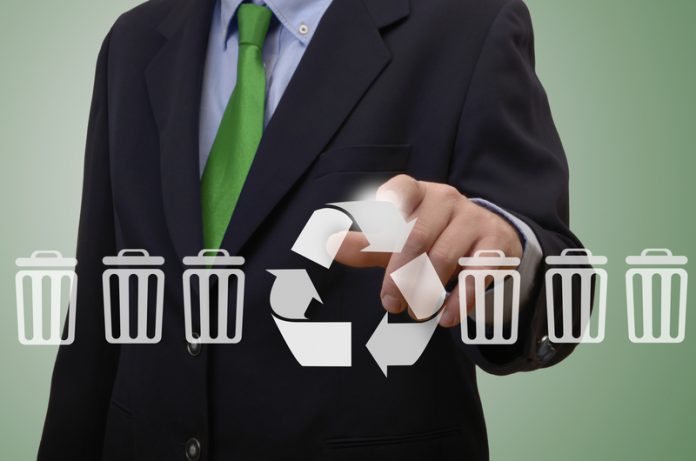It is a necessity to have a recycling policy in the current business world. The following article will explain why your organisation needs a policy for business and environmental reasons
-
Lower your organisation’s costs
Introducing an efficient recycling policy should lower the costs of waste disposal. This could be anything from a couple of hundred pounds a year to thousands of pounds a year depending on the volumes of waste produced.
-
Reduce bin and/or skip numbers
You would do well to find a more expensive waste system than using multiple bins or skips with no alternative. Piling waste into these voluminous yet limited on space items means regular, expensive collections are a necessity. Whilst many organisations use recycling bins, they are not very efficient in terms of cost, segregating waste and guaranteeing all of the waste actually gets recycled. You can easily reduce bin quantities or remove them altogether with the implementation of recycling equipment, such can crushers and cardboard balers. This will take over all of the cardboard, metal and plastic recycling duties, so bins which contained these materials can be made redundant.
-
The cost of bins vs balers
Bins are expensive because essentially they are inefficient. Loose waste does not transport well. Bins can only contain a small amount of waste before they are full and then they need to be taken away. Organisations are paying big money for small quantities of waste to be taken away. The government has implemented a landfill tax over the last few years, which increases every April. Bin suppliers are hit with this tax, the cost of which then gets pushed on to their customers. Balers produce bales of cardboard and plastic which are then 100% recyclable. A recycler will never do a bin collection as loose waste is of no value to them. Baled waste however is, and this is why the majority of UK recyclers collect cardboard and plastic for free and in more remote areas for a small fee. The only charge is the initial outlay to purchase a baler or a low-cost rental.
-
Other cost-saving machines
Waste-reducing equipment is designed to reduce numbers of general waste, glass bins and other various waste bins. General waste can be compacted by machines which crush bags down to a fraction of their original size, this means bins fill up in far less time and fewer are required. Glass bottles can be crushed in a glass crusher, which dramatically reduces volume and again means fewer bins are required.
Increase space and reduce time at your organisation
An efficient recycling policy will also help your organisation to save space on site and reduce labour hours.
-
Save space
Multiple, voluminous bins can take up huge amounts of space, which can be a nuisance for any size business. Bagging yourself some recycling equipment will allow you to remove a number of these bins to save space. More space means less mess and more freedom to move around. New car parking spaces and new seating areas can be created by dispersing of bins. Recycling equipment has a much smaller footprint than bins and can be located in tight, discreet spaces.
-
Reduce labour hours
Numerous bins often require their own area away from the workspace otherwise they would get in the way. Staff, therefore, have to walk to this area with the waste for disposal. Over time these walks can add up hundreds of hours amongst various staff members. Not only do they have to walk to the bins but cardboard boxes will often need flat-packing in order to maximise space in the bins. This adds to the already high amount of hours. A baler’s small footprint means it can fit into convenient spaces close to the working area. Balers also have large enough chambers to handle whole cardboard boxes so flat-packing is not required – hundreds of labour hours can be saved.
Improve your organisation’s green credentials and help the planet’s plastic problem
-
Improve green credentials
Baling recyclables ensure up to 100% of the waste can be recycled. Dense bales are easy to transport and will not create a mess. Complete bales are also ready to be recycled, which is why recyclers are always keen to collect them. Loose waste has a tendency to create a mess and blow away in poor weather. It also has to be manually segregated which means human error can also play its part in meaning the waste does not get recycled properly.
-
Combat problem plastics
It is no secret that the planet has a problem with single-use plastics polluting sites and our oceans. You can ensure you never contribute to this by segregating all of your plastics in recycling plastic bag stands and baling it. You can be sure that dense bales will be fully recycled by a recycler whereas with binned, loose waste this can never be guaranteed, even if the intentions are honest.
There are more than enough reasons why your organisation needs an efficient recycling policy. It should be something that needs to be looked at thoroughly if you are just getting by with bins and/or skips.











